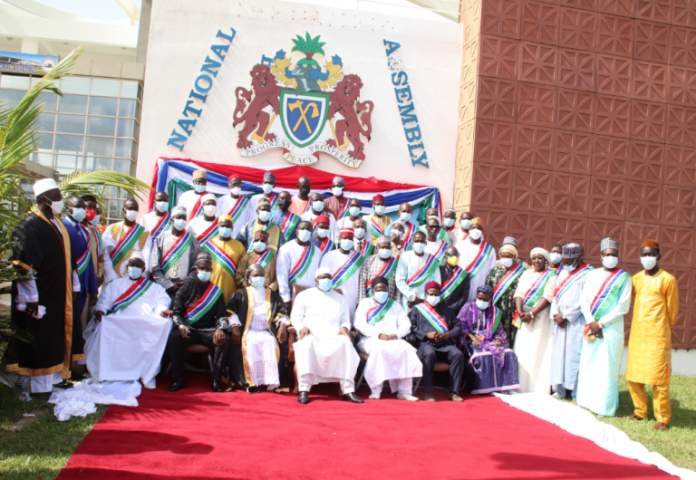By: Kebba AF Touray
The National Assembly wll on Monday, 15 July consider the Women (Amendment) Bill, 2024, under Standing Order 72.
The bill seeks to repeal the provision prohibiting Female Circumcision in the Gambia, tabled before the plenary by the Member for Foni Kansala, Hon. Alimameh Gibba.
Since its introduction at the legislature, the bill has triggered dissenting opinions of the general public, with some advocating for the provision to be repealed, whilst others advocating for the provision to remain in the law books of the Republic of the Gambia.
The Assembly had referred the bill to the Assembly Business Committee (ABC) for committal to either relevant committees or committees of the legislature.
Subsequently, the ABC committed the bill to the Joint Committee on Health and Gender, for scrutiny and report its findings to the plenary.
The joint committee conducted the legislative assignment by consulting stakeholders such as medical experts and CSOs to share their views of the bill.
The Joint Committee on Health and Gender, on Monday 8th July 2024 tabled its report on the bill, which featured both justifications for supporting the repeal and maintaining the law.
On justification supporting the repeal of FGM/C, the report of the committee indicated that some of the witnesses interpreted the legality of female circumcision within Islamic guidelines, but condemned harmful practices associated with it and advocated for a balanced approach that respects religious beliefs while safeguarding women’s well-being.
On the justification for maintaining the ban on FGM/C, the report stated that the Gambia has also enacted domestic laws, in particular, the Children’s Act of 2005, the Women’s Amendment Act of 2015, and its amendment of 2015 on the prohibition of FGM.
According to the report, the enactment of these domestic laws reflects the country’s commitment to protecting its women and girls from this harmful practice, which is also a gross violation of their human rights.
After an intensive debate on the report, by the legislators with divergent views, the National Assembly adopted the report.
A total of 52 National Assembly took part in the voting process. Out of these 35 voted for the adoption of the report, whilst 17 voted against the adoption of the report, and 2 lawmakers abstained from voting.
Subsequently, the report of the joint committee on Health and Gender on the bill was adopted, and now awaits the consideration by the committee of the whole assembly.
Today as indicated in the order paper, the lawmakers are scheduled to consider the bill.
After consideration, the bill is expected to go to the third reading stage, where it will be decided by the deputies whether to reject the bill or to pass it.



















